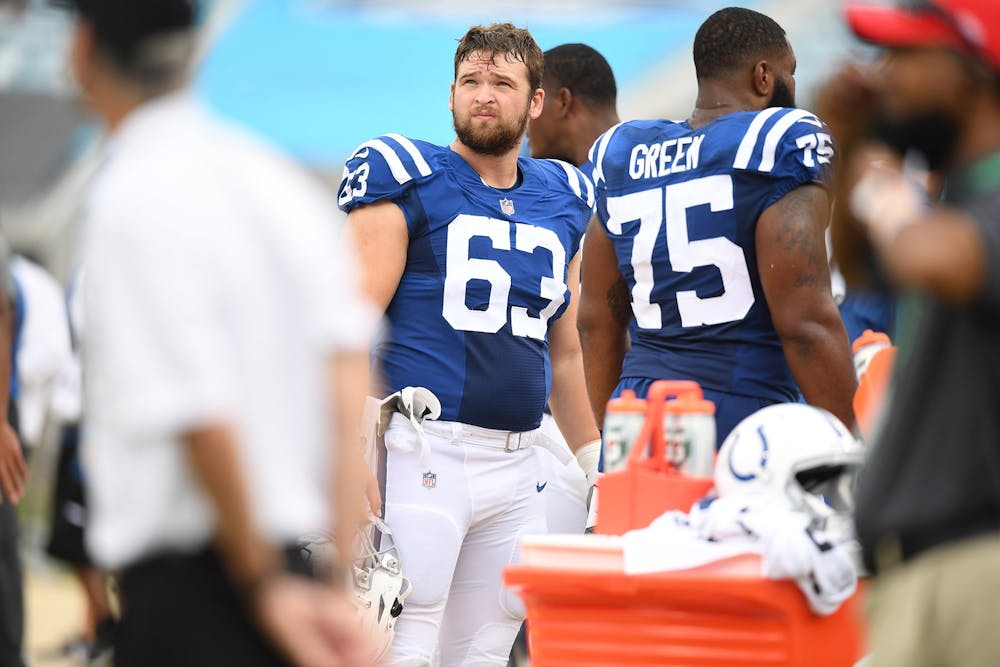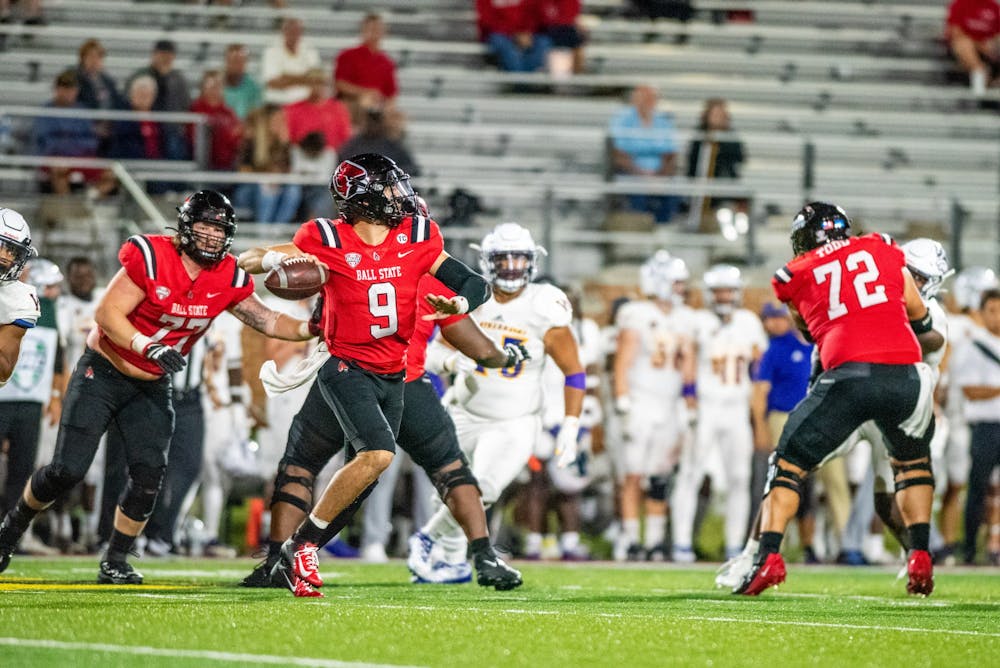The NCAA officially adopted its name, image and likeness (NIL) legislation July 1, meaning any student-athlete can gain sponsorships and profit off of their name, image or likeness.
Students from large, Division I schools such as Alabama, Notre Dame and Ohio State won’t likely have as difficult of a time gaining sponsorships because of the national exposure these schools regularly receive. For example, Ohio State saw 16 million regular viewers in 2016, according to Nielsen’s sports media report. In comparison, students from schools like Ball State may have a harder time taking advantage of the new legislation, as these schools are in smaller markets than Power 5 schools. In 2021, Ball State Athletic Director Beth Goetz shared with Indiana Public Radio that the Cardinals had 2.65 million viewers — nearly 14 million less than Ohio State.
Ball State redshirt fifth-year quarterback Drew Plitt said he is all for the NCAA’s NIL legislation and thinks it is a great opportunity for athletes to build their brands. However, he also said he believes the NCAA should be more specific about the rules and regulations of what student-athletes can and can’t do when it comes to the policy.
“An important thing to have is someone who knows and can explain the rules,” Plitt said. “There really aren’t any rules set in place — that is one thing that does concern me about future athletes.”
Plitt said he doesn’t think the legislation will have a large impact on Mid-American Conference schools because of the smaller markets these schools are in compared to several Power 5 schools. He and fifth-year wide receiver Justin Hall have their own merchandise available at The Shop, an Indianapolis-based store that creates merchandise based off of Indiana’s most popular collegiate and professional sports teams.
“From a player’s perspective, if you want to play ball, you’re going to play ball,” Plitt said. “The guys that come to Ball State come here to play ball. They don’t come for the money or sponsorship opportunities.”
From a coach’s perspective, however, Ball State Women’s Basketball head coach Brady Sallee said he thinks the legislation will bring more opportunities to collegiate athletes at every level.
“If you look at it from the perspective of a college athlete, it’s a no-brainer,” Sallee said. “I’m in favor of it, for sure, because the time is right. For me, this is an exciting time for the women I coach and the athletes all around college sports.”
Sallee said he has not seen a change in how his players carry themselves since the legislation was passed and is excited for them to potentially represent the university on a bigger level. He also said the new ruling is vital toward the progression of the NCAA, giving him optimism for his student-athletes.
“I don’t think there is a way to continue college athletics without this change,” Sallee said. “There will be consequences eventually — we just have to be prepared for that. I think it forces them to start thinking more like an adult, quicker than before. I’m all in.”

Former Ball State offensive lineman, now Indianapolis Colts guard, Danny Pinter looks up during the Colts’ first game of the 2020 NFL season against the Jacksonville Jaguars Sept. 13, 2020, at Lucas Oil Stadium in Indianapolis. Pinter was selected in the fifth round of the 2020 NFL Draft by the Colts and made the team’s 53-man roster. Indianapolis Colts, Photo Provided
While the legislation allows student-athletes to maximize their reach, Indianapolis Colts offensive lineman Danny Pinter, 2019 Ball State alumnus and former Ball State Football player, said he thinks programs like Ball State could suffer as a result of the new legislation due to opportunities conferences like the Big Ten will have to offer their players.
“At Ball State, we get some guys who are borderline Big Ten players, and now they may look to go to those bigger programs,” Pinter said.
Reflecting on his career in Muncie, Pinter said, he doesn’t see how his mindset toward the game would have changed if the NIL legislation was in place during his Ball State career. He said he recommends future student-athletes put being a team player first before themselves.
“For future college athletes, just make sure to put the team first,” Pinter said. “I know that’s the mindset of the players on Ball State’s current team — I just hope that continues. In this way, the amateur aspect of college football still needs to be kept, and I think the structure of this ruling will ensure it will be.”
Dennis Trammell, 2005 Miller College of Business alumnus and former Ball State Men’s Basketball player, said he believes he would’ve benefited from the legislation during his Ball State career.
“As a college athlete, having a little more money in my pocket for the things I want and need — like some extra clothes for the winter or groceries — would have been awesome,” Trammell said.
Trammell said he compares how student-athletes can capitalize on the new ruling to working an overtime job. If student-athletes put in the extra time to get sponsorships, Trammell said, they’re going to get some extra money and should know how to manage that money in a responsible manner.
“If you’re a big-time athlete going to play DI, you need to know something about the business side of things — especially now,” Trammell said.
Contact Kyle Smedley with comments at kyle.smedley@bsu.edu or on Twitter @smedley1932.





